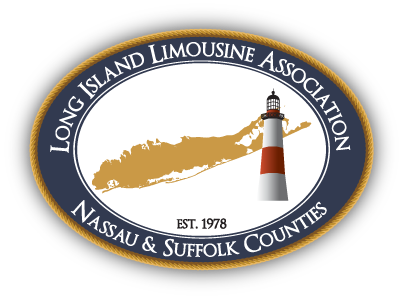By Matt Meduri December 30, 2024
Transportation isn’t nearly the headache it once was. Rideshare apps like Uber and Lyft, as well as the ease of finding freelance drivers on Facebook Marketplace have made finding a ride in a pinch or ahead of a celebratory night much simpler.
However, it’s not all it’s cracked up to be, warns the Long Island Limousine Association (LILA), particularly ahead of New Year’s Eve, one of the busiest nights of the year for drivers. Whether it be airport pickups for holiday travelers, or designated drivers for those who wish to bring in 2025 with a bit of indulgence, LILA warns that for-hire drivers who use their own personal vehicles with no other bona fides. This is opposed to the rideshare apps, where drivers are commercially insured for medical and other expenses up to $1 million. Free agent drivers, who are often simply looking to earn extra income and possibly take an intoxicated driver off the road, are doing so without understanding the risks of operating as an unlicensed chauffeur.
Members of the LILA executive board held a press conference on Friday afternoon ahead of New Year’s Eve at All-Star Limousine in North Amityville to address these specific concerns.
“We have over one hundred members and over one thousand vehicles on the road,” said LILA Board President Tom Gouldsbury (pictured left). “Our association is very beneficial to the Island and our industry,” he added, referencing LILA’s foundation. The group was chartered in 1976 to address the “never ending insurance problem” with a charter group of twenty-four owners to “provide a media for owners of limousines to unite for a common cause and promote goodwill and understanding amongst all,” according to their website.
“Unlicensed operators are the drivers who do not follow the rules, are not properly licensed, do not have background checks, and do not have the proper insurance,” said Gouldsbury. “People are unaware of what is going on.” Gouldsbury advised against finding drivers for hire on social media, particularly “mom’ groups,” on Facebook, a common type of community page, usually inclusive of a particular hamlet or village, where residents can exchange information, ask questions, and raise awareness to certain issues, public hearings, and public projects.
While the intentions of those in the “mom’s groups” are often altruistic, accuracy of information from such groups is also frequently scrutinized. “God forbid there’s an accident, these drivers are not covered. Plus, even if the person driving has their own personal insurance, it won’t cover for-hire vehicles,” said Gouldsbury.
To legally transport passengers in the State of New York, the operator must have a TLC Driver’s license from the Taxi and Limousine Commission (TLC), a commercial driver’s license (CDL) to operate large or heavy vehicles, such as buses, vans, or stretch limos, pass background checks, and submit the vehicle for inspections every six months. The NYS Department of Transportation website shows such requirements, such as those to complete taxi school, complete a wheelchair-accessible class, complete a defensive driving course, and submit a medical history (Form B) signed by a doctor, attesting to medical fitness to drive a taxi or passenger vehicle.
Gouldsbury also says that emergency training is a crucial component that shows the stark contrast between licensed operators and unlicensed, for-hire drivers.
“Drivers have specific rules to protect their passengers. They’re trained to use a first-aid kit, a fire extinguisher, and an emergency hammer (a glass-break tool),” said Gouldsbury. “But licensed drivers are also required to have livery insurance, and providers carry $1 million in coverage at minimum.”
But perhaps worst of all, passengers harmed or even killed while using the services of an unlicensed driver will have no recourse through the driver’s or even their own insurance.
“Any insurance company a driver might have will deny the claim,” said Gouldsbury. “And unfortunately, whoever is in the car might have incurred liability. They’re basically all on their own.” Gouldsbury offered some tips for riders to identify a legitimate driver: proper licensure, which can be produced upon request, a license plate labeled “Livery” or “Commercial,” an absence of which Gouldsbury says is a “dead giveaway,” and no visible endorsements from TLC, NYSDOT, or Nassau or Suffolk counties.
Gouldsbury recounted a recent call of an illegal operator found at John F. Kennedy Airport. “He was caught at JFK, reportedly illegal[ly operating], they put his Mercedes Sprinter out of service, which had numerous violations, and unfortunately, the people he was picking up, had to find another way home,” said Gouldsbury, adding that simply writing the driver a ticket and allowing him to take the passengers home could have resulted in an accident where the passengers were not covered by the driver’s insurance.
“We call New Year’s Eve ‘amateur hour,’” said Gouldsbury, referring to the larger numbers of unlicensed drivers operating illegally, adding that LILA’s pre-employment measures help alleviate a gap in the market on the industry’s biggest night of the year.
“We’re not a taxi service; we work very hard to deliver a higher standard than other people,” adding that all drivers of LILA’s members abide by drug testing, in addition to background checks pursuant to Megan’s Law, a 1994 federal law that requires law enforcement to publicize information about registered sex offenders.
“The brokers’ responsibility is to monitor the track record of each driver on a quarterly basis, and if that driver has issues, whether it be a DWI or a bad driving record, we’ll pull the driver off the road instantly,” said Joe Marotta (pictured right), a LILA Executive Board member and insurance broker who represents several companies that insure this industry. Marotta shared how he conducts quarterly driver training, which entails safety training with emergency supplies and tools, but also the mint-on-the-pillow aspects of a legitimate transportation service.
“How to take the luggage out of a vehicle so the passenger doesn’t have to do it, how to disembark a passenger at an airport so he doesn’t open the door in the traffic; it’s a lot of different things,” said Marotta. “I had a situation where a driver opened the door, the passenger stepped out, and he was clipped by another vehicle. This training is all in the best interest in the customer, because there’s a lot more than just driving the vehicle.”
LILA has a hotline set up to report suspected unlicensed drivers: 631-944-8448, or by contacting lilalongisland@gmail.com


0 Comment on this Article